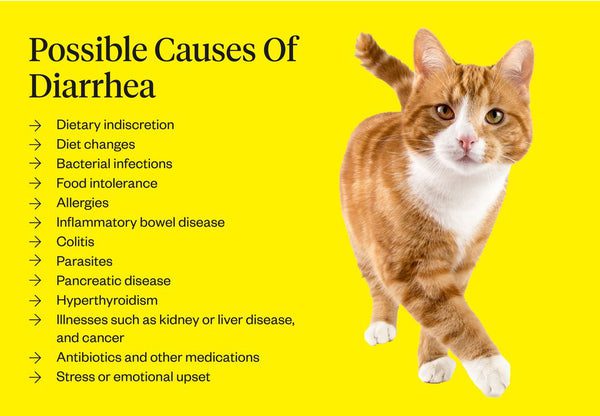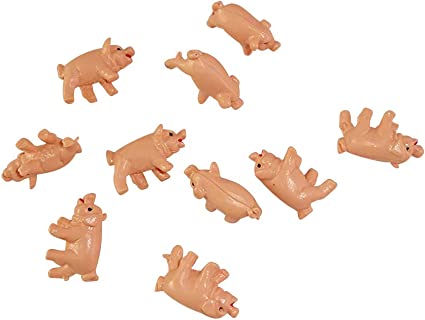
The cat has diarrhea: possible causes and recommendations for treating the cat
Diarrhea in cats is characterized by frequent liquid stools. A change in diet, as well as various infections and diseases, can lead to the disorder. If diarrhea lasts for several days and other unpleasant symptoms are observed, then the cat must be urgently treated.
Causes of diarrhea in cats
Normally, cat stool should be slightly moist, soft, structured and dark brown. healthy animal defecate 1-2 times a day. If the feces have lost their shape or become watery, then this indicates diarrhea.
In most cases, diarrhea is caused by a malfunction of the digestive system. It can be caused by eating spoiled foods or food waste. Also, the cause of diarrhea in cats is a change in food. In some cases, the disorder is observed after motion sickness in transport or as a result of severe stress, which can occur when contacting another animal or after visiting a veterinarian. Such causes are easily eliminated, which means that it will be easy to cure a cat of diarrhea.
Sometimes diarrhea happens caused by more serious reasons:
- worms;
- cancer;
- various viral infections;
- fungus;
- bacterial infections, namely salmonella and clostridia;
- various diseases of the liver and kidneys;
- diabetes;
- intestinal obstruction.
Despite such an impressive list, you should not panic, because in most cases it is indigestion that leads to diarrhea.
To determine the cause, pay attention to the cat’s feces:
- yellow color indicates insufficient digestion of food;
- an orange hue indicates an excess of bilirubin and possible liver damage;
- the green color of feces occurs in the presence of putrefactive processes in the intestine;
- white feces indicates that bile does not enter the intestines;
- watery diarrhea is observed as a result of abundant release of fluid in the intestines, while in most cases the mucosa is not damaged;
- too frequent diarrhea, observed 5 times a day or more, indicates a disorder of the rectum or other serious diseases;
- diarrhea along with vomiting occurs when a cat is severely poisoned;
- an admixture of blood indicates serious illnesses;
- the presence of mucus in the feces is usually observed with inflammation of the large intestine.
Diagnostics
The most important thing in the treatment of diarrhea is to determine its exact cause. To help the doctor make the correct diagnosis, it is necessary to describe all the subtleties of the behavior, feeding and condition of the cat. within the last 2-3 days. In addition to a thorough examination, the doctor will measure the temperature of the cat, probe its organs, and also determine the degree of dehydration. In some cases, an additional study of feces, urine, and blood will be required. To make sure that there is no intestinal obstruction and other diseases, an x-ray should be taken.
How to treat diarrhea in a cat?
If you notice that your cat has diarrhea, you need to start analyze animal nutritionand only then treat it. If during the last 2 days the pet’s menu has had raw seafood or liver, milk, too fatty meat, then most likely they caused the disorder. In this case, it is enough to exclude the mentioned products from the diet and keep the cat on a half-starved diet for some time. With abundant liquid diarrhea, reduce portions and feed the animal less often.
When a kitten has diarrhea when switching to another foodenough to give small portions. In fact, this is quite normal, that is, you should only worry if the diarrhea does not go away for a long time or occurs after you have stopped giving a new food. In this case, you need to treat the worms and show the kitten to the veterinarian.
If the animal shows no other symptoms other than diarrhea, including fever, treatment should be initiated. A kitten is not fed for 12 hours, and an adult cat for a day. During this period, activated charcoal is given at the rate ofa 1 tablet per 10 kg. The required amount of the drug is dissolved in warm boiled water, and then the solution is drawn into a syringe without a needle, with which the liquid is poured into the cat’s mouth. Many veterinarians, in addition to activated charcoal, recommend giving your pet a decoction of St. John’s wort or chamomile.
After a daily fast, you can start feeding the cat. Easily digestible foods are suitable for this purpose. This applies to foods such as boiled chicken, boiled eggs and rice. You can also give medicated food created specifically for cats. When choosing it, you need to pay attention to the fact that the package contains a note about the treatment of digestive disorders, including diarrhea. It is worth noting that the first few days after diarrhea, the animal is given half the usual portion.
preventive measures
To avoid developing diarrhea in a cat, it is necessary follow simple guidelines:
- maintaining the cleanliness of the cat’s litter;
- regular disinfection of cat bowls and tray;
- the use of high quality feed or fresh natural food;
- timely vaccination;
- treatment for worms and other parasites.
If the cat has diarrhea for several days or there are impurities of mucus and blood in the feces, it is necessary to visit a veterinarian. This also applies to cases where presence of other symptoms, including plaintive meowing, fever, weakness, lethargy, and vomiting. In the absence of such signs, therapeutic fasting and a review of the diet will help improve the cat’s condition.





